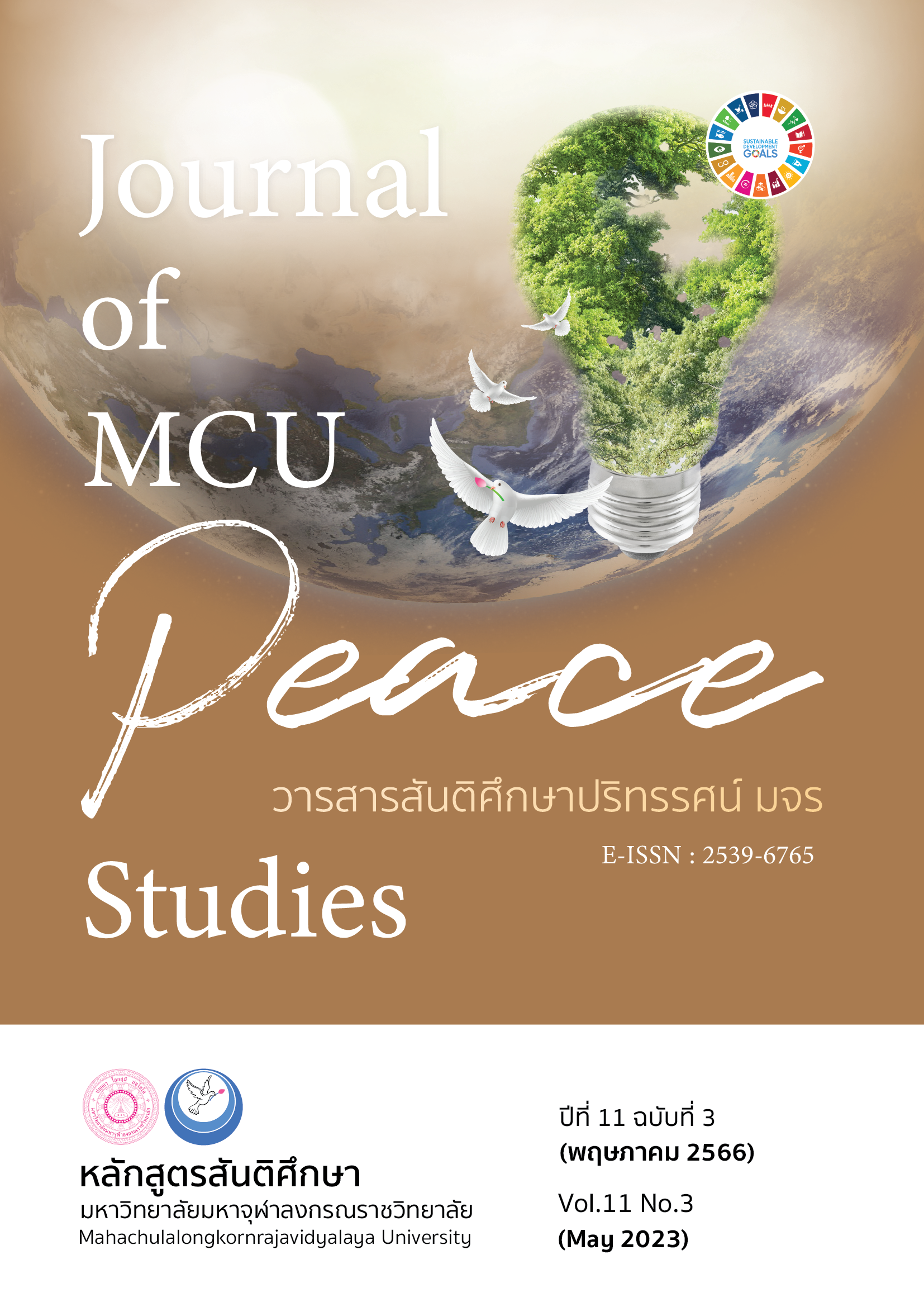Female Roles in Peace Building of Aceh, Indonesia for Acclimating in Deep South of Thailand
Main Article Content
บทคัดย่อ
This study aims at analyze the roles of women in Asia in the resolving violence and conflicts through the peace process. This qualitative research aims to raise awareness and provide policy proposals to the government and related organizations. The empirical data is utilized to gain insights into the operations and collaborations among women's organizations and peace networks in addressing political and gender-based violence. In order to access the peace process, the researcher includes a case study that involves gathering information through document analysis and interviews in the field, focusing on the experiences, knowledge, and capabilities of women from 7-8 organizations who serve as leaders in the peace process in Indonesia. The case study specifically examines women's involvement in peace operations in Aceh Province between October 2016 and May 2017. The study revealed that women are significantly affected by violence as victims of war and insurgency involving weapons. As a result of these losses, there is a unification among women who have lost family members or have been otherwise affected by the violence. These women also consider the broader consequences of violence, such as its prevalence in conflict areas where women bear the burden of managing both household and social responsibilities.
Therefore, this research has made a suggestion to establish a female group aimed at resolving conflicts within families in conflict areas, both on a large scale and at the societal level. These activities can be conducted within social groups that collectively acknowledge the problems, taking into account various social factors such as politics, environment, culture, belief systems, religions, and interpretations of ethnicity. The types of conflicts explored in this study highlight the roles and participation of women in the peace process within Aceh Province, Indonesia. In this article, a comparison is made between the roles of women in Aceh and those in the Deep South of Thailand in order to identify similarities and differences.
Article Details

อนุญาตภายใต้เงื่อนไข Creative Commons Attribution-NonCommercial-NoDerivatives 4.0 International License.
ทัศนะและความคิดเห็นที่ปรากฏในบทความในวารสาร ถือเป็นความรับผิดชอบของผู้เขียนบทความนั้น และไม่ถือเป็นทัศนะและความรับผิดชอบของกองบรรณาธิการ ยินยอมว่าบทความเป็นลิขสิทธิ์ของวารสาร
เอกสารอ้างอิง
Bowen, J. (1989). “Narrative Form and Political Incorporation: Changing Uses of History in Aceh, Indonesia”. Comparative Studies in Society and History, 31(4), 671-693.
Tippimol, O. (2007). Shari'ah Law with Aceh Women: Marginal of Marginal. Journal of History, 4(1), 114-163.
Reid, A. (1969). The Contest for North Sumatra: Atjeh, the Netherlands, and Britain, 1858- 1898. Kuala Lumpur: University of Malaya Press.
Siapno, A. J. (2001). Gender, Nationalism, and the Ambiguity of Female Agency in Aceh, Indonesia and East Timor. In Waller, M. and Rycenga, J. eds. Frontline Feminisms: Women, War, and Resistance. New York: Routledge.
Siapno, A. J. (2002). Gender, Islam, Nationalism and the State in Aceh: The Paradox of Power, Co-optation and Resistance. New York: Routledge Curzon.
Tiro, H. (1984). The Price of Freedom: The Unfinished Diary. Norsborg: Information Department, National Liberation Front Aceh Sumatra.
Tornquist, O., Prasetyo, A. S., & Birks, T. (2010). Aceh: The Role of Democracy for Peace and Reconstruction. Yogyakarta: PCD.
Zeccola, G. P. (2007). “Whose Human Rights? Field Notes on Locals and International NGOs Perspectives to Conflict Relief in Aceh, 1998-2007”. in Alistair D. B. Cook. Culture, Identity and Religion in Southeast Asia. Newcastle: Cambridge Scholars Publishing.


